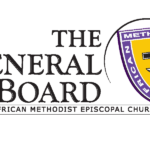Rev. Tiffany Brooks, 2nd Episcopal District
Data is and will always be essential to the development and progress of any organization; however, the one who has it determines its relevance and effectiveness. In 2020, following the beginning of the COVID 19 pandemic, the Barna group conducted a study analyzing trends within the Black church with a small sample size of Black congregants from a variety of backgrounds and identifiers. The focus of their study was to analyze these trends as they related to leaders and members in predominantly Black denominations and Black-led congregations and shifts exacerbated by the pandemic.
The Barna Group study reminds me of the work done by Lincoln and Muymiya, published in 1990 in their book titled, The Black Church in the African American Experience. The data presented by the Barna Group is not at all surprising; it is information that has been known and growing over the last 20 years. The data presented did, however, provide deeper insight into what is happening and foreshadow the path of denominational churches and others. Consequently, we should be asking ourselves what we should be doing if the data we consistently receive does not reflect a positive trend?
While the information presented is not new, it is expansive and a needed reminder that the church still has work to do to ensure its effectiveness and, quite frankly, its longevity, especially in regards to denominational borders. The problem is not a matter of tradition but of how tradition—its structure, symbolism, and implementation are detrimental to the forward progress of the church. The church-of-old is not the church-of-now, and it has not been for quite some time; however, how do we lean into this reality? How do we move from research and advice to effective implementation practices? The Barna Group study is relevant and engaging; however, data is only a small portion of what we need to move our churches forward. The world is changing at a rapid pace. As many churches are beginning to engage in more virtual spaces such as the metaverse, some churches are significantly behind for reasons including but not limited to resources (i.e., staff and funding), access, outdated mindsets, equity injustices, and structural disorganization and dysfunction.
The Barna Groups study provides data that highlights the following effects of the COVID-19 pandemic and elevates what we have always known and continue to discuss without strategic plans for addressing. First, congregational attendance has decreased even more, which is understandable in such an unstable time. Second, Black youth and young adults who attend church are more likely to identify as being Christian than other races but are less likely to identify as Christian than their older Black counterparts.[1] Third, there has been an 89% decrease in religious affiliation from Black adults compared to the general population.[2] Fourth, those who identify as Christian, Black Millenials, and Black Gen Z are distancing themselves from faith and spirituality, claiming to be more spiritual but not religious, and are finding other spaces outside of the four walls of the church to engage in their faith journey. The study refers to it as a “dissociation of belief, practice, and identity.”
The data further shows that Black young adults prefer Bible study in group settings while older Black adults prefer personal Bible reading. However, this data does not translate to attendance as older Black congregants continue to make up the majority of those who attend weekly and bi-weekly Bible study. Interestingly enough, the study also reported that older Black adults are “more likely to say that teaching the Bible is one of the most important issues that the Black Church should be involved in.”[3] As it relates to engagement outside of worship services, men and Millenials are the most frequent participants; however, this is not the case for worship services and in-house church engagement opportunities. This information has made it more apparent that what churches can and are willing to provide and facilitate dictates who participates. Exploring further data, churches are seeing fewer than 100 attendees, and this has been the case prior to the pandemic, yet Black Christians still claim that the Black church is central to their lives. With this small glimpse of an extensive body of research, we find what we have always known, society is changing, church engagement is changing, but some churches are not in the way that accommodates Black congregants’ present and everyday realities.
It is important for Black churches, especially the African Methodist Episcopal Church as the oldest Black denomination, to consider how this information affects its systems and structures, especially as more Black non-denominational churches continue to grow, expand, and attract Black Christians at a significant rate from all generations. While we continue discussions about how to improve in our areas of lack, at some point, we have to recognize that we are continuously whispering to the wind if we are not going to act. Indeed, conversations need to be had, and decisions need to be made, but thoughtful implementation and actions will push the church further and increase its longevity. Without these things, we find ourselves on a journey towards irrelevance and extinction.
The Rev. Tiffany Brooks is the Minister to Young Adults for Reid Temple AME Church in Silver Spring, Maryland.
[1] The Barna Group. Trends in the Black Church: Celebrating Its Legacy and Investing in a Hopeful Future. Barna Group, 2021, Barna, https://www.barna.com/trends-in-the-black-church/.
[2] Ibid., pg. 8
[3] Ibid., pg. 14





